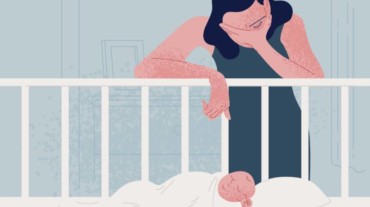
Motherhood is a special feeling, but along with the joy of bringing light to a new life comes a barrage of emotions. The mixed bag of feelings can be overpowering at times, thereby making the life of a mother go haywire at times. More often than once, mothers, the primary caretakers of the child, do not prioritize their mental and physical well-being. It happens so because of the absence of their precious self-care time that included activities that they liked to indulge in before motherhood. And so, the mental health of mothers matters.
There could be a lot of reasons behind mothers not prioritizing their mental health. The first one being a simple lack of awareness. Mental health issues of mothers often do not have a face. A mother can be depressed, anxious and yet be clueless of all the signs that depict that she is undergoing a breakdown.

It could partly be due to lack of knowledge and discussion in the family as well educational orientations in schools and colleges. The stigma attached to mental health of mothers along with family pressure becomes a barrier to discussion of her problems. Pertaining to the caregiver, nurturer image that mothers ought to live up to, they think of themselves as a role model for their child. In such cases, the vulnerable mothers, who need empathy and a lending ear for themselves, often suffer from mom guilt for not living up to the expectations.
Postpartum depression in a mother can alter a child’s experience of the world, both internally and externally. There is a marked difference in the way a mother interacts with her children when depressed and this can hugely impact a child’s development.
In some societies, where discussing mental health is a taboo, it becomes hard for mothers to accept or express the need to seek help in raising kids. According to experts, alerting the mothers to not suppress feelings that might be detrimental to their mental health and giving an outlet for their emotions, is extremely important.
Taking time for your own interests should not result in guilt, which is often the case with mothers. When you make time for yourself and fulfill your needs, then only you can look after everyone else; your children, your partner, and your work. Mothers need to realize that they can’t care for others if they don’t give love and care to themselves first.

Working mothers are often expected to work like they don’t have children and raise children as if they don’t work. This impossible situation is the root of gender inequalities in the workplace, according to two studies in Washington University. The research papers, published separately, demonstrate how inflexible schedules and biased hiring practices, combined with gendered cultural norms around bread-winning and care-giving, lead to discrimination against mothers and perpetuate existing gender inequalities in the workplace.
The researchers found that women who worked in occupations with higher shares of working hours per week, and occupations that paid higher wage premiums for longer hours prior to their first child birth, were significantly less likely to be employed post-birth. They found no similar relationship between inflexible work hours and employment for fathers or childless women.
The probability of mothers working post-birth depended strongly on their pre-birth occupation. Among women in flexible occupations — defined as those that were 1 standard deviation below average in occupational work hour inflexibility — an estimated 79.2 percent of women continued working post-birth. In contrast, only 67.6 percent of women in inflexible occupations – those that were 1 standard deviation below average in occupational work hour inflexibility – continued working post-birth.

Social conditioning entails that the woman puts home before career even though no expense has been spared in her education and upbringing towards being independent. The equation in a household, where both partners are employed, changes with the arrival of a child. Maternal instinct ensures that in the initial crucial weeks; the baby is mostly, if not entirely, in the mother’s care. During this period, mother-child bonding becomes very strong and sees many women happily opting out of pursuing a career.
Select Topics of your interest and let us customize your feed.
PERSONALISE NOWIn families, where both the mother and father are equally involved in child rearing, the woman is able to experience less guilt and more satisfaction while being a working mother. Mutual understanding between spouses ensures that along with bringing in the income, both parents not only share the responsibilities of childcare and the immense fulfillment that comes with it, but also continue to enjoy each other’s company as partners.
In conclusion, maternal mental health deserves full attention of stakeholders involved, from health officials, lawmakers, and health care providers to employers and families. Its challenges are treatable but require awareness and collaborative coordination that promotes education and support for mothers. By figuring out the emotional and psychological needs of the mother into the scope of early family pediatric visits, this support has a greater chance of coming on time and in the manner that best serves the entire family and in solidifying the foundational fabric of society as a whole.